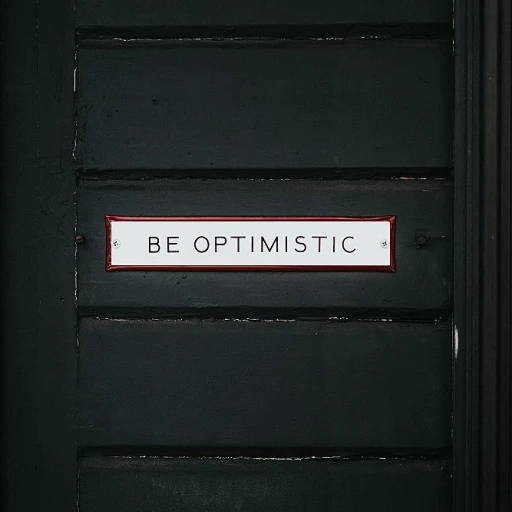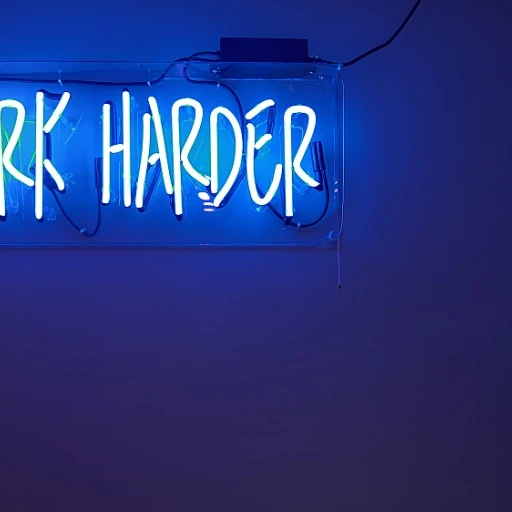The Silent Partner in Strategy: Sleep's Role in Decision-Making
Peeling Back the Night: Understanding Sleep's Impact on Leaders
When we talk about performance in the boardroom, the usual suspects crop up: financial acumen, strategic foresight, and leadership qualities. But there's a silent partner often overlooked—one that's intertwined with our cognitive functions and decision-making abilities: sleep. Famously characterized as a waste by busy professionals, sleep, in reality, contributes profoundly to their strategic aptitude. Honing your personal brand also means placing value on what happens when the lights go out.
Rest as a Strategic Asset
Why do some leaders make astute decisions while others falter? Research suggests sleep quality may be a key differentiator. Sleep enhances memory and problem-solving capabilities, which are critical components in the decision-making mix. An American Academy of Sleep Medicine study highlights that 7-9 hours of sleep a night can significantly sharpen judgment and increase the capacity to assess complex situations accurately.
The Cognitive Connection
It's not just about logging hours in bed, but about mastering sleep's intricate dance with our brain functions. Those deep dives into REM sleep—Rapid Eye Movement stages known for intense dreaming—are believed to play a role in organizing memories, learning, and emotional processing. Missing out on these critical phases due to sleep disorders or self-imposed deprivation can mean missing out on the night's strategic cognitive workout.
The Proof in the Patterns
People who enjoy quality sleep tend to exhibit increased focus and creativity—an executive's bread and butter. Studies by the Sleep Research Society align with this, showing correlations between sleep and our ability to generate innovative solutions and strategies. A rested executive is an innovative executive; one who's wise to the evidence that sleep is a vital piece of the strategy puzzle.
Quantifying Rest: The Metrics of Sleep and Performance
The Benchmarks of Restfulness: Understanding Sleep's Impact on Executives
When the night fades away, and the demanding day beckons, the amount and quality of sleep can set the stage for an executive's performance. Quality sleep isn't merely about clocking in hours; it's intricately tied to the peaks and troughs of corporate decision-making. Studies illuminate a stark correlation between sleep and cognitive function; for instance, the Sleep Research Society suggests that six to eight hours of sleep per night are ideal for most adults, laying a foundational benchmark for rest. But for corporate leaders, it's not just about the number; it's about the depth and restorative nature of those sleep hours.
The Ties Between Sleep Metrics and Leadership Excellence
Drilling down on data, we find that REM sleep—or Rapid Eye Movement sleep, a phase known for dreaming and memory consolidation—is a key player in the executive's arsenal for sharpness and creativity. As the American Academy of Sleep Medicine points out, disrupting this delicate phase can impede an individual's ability to synthesize complex information, an essential skill in the strategic toolkit of any high-ranking professional.
Furthermore, the impact of sleep deprivation on performance is a glaring risk factor. According to the Mayo Clinic, chronic lack of sleep is associated with a higher risk of conditions like heart disease and high blood pressure, which can stealthily erode an executive's health and effectiveness. In the high-stakes ballet of boardroom maneuvers, every percentage drop in health and decision-making ability can have outsized consequences on both the individual and the organization.
Personalized Sleep Strategies That Foster Strong Leadership
By examining one's own circadian rhythm—the body's natural sleep-wake cycle—executives can harness the power of personalized medicine to enhance their leadership capabilities. Notably, the art of advanced presentation skills in the boardroom is often a reflection of behind-the-scenes sleep habits. For example, the National Heart, Lung, and Blood Institute underscores the necessity for sleep health to maintain cognitive function, which in turn influences how leaders articulate and implement their visions.
Decoding the Data on Sleep and High-Stakes Decision Making
Clinical studies conducted by the National Center for Biotechnology Information (NCBI) underline sleep's critical role in 'big picture' strategic thinking. Sleep experts like Dr. Nick Villalobos, whose work is reviewed regularly on NCBI's platform, emphasize that decision-making is not just a daytime activity; it's a 24-hour cycle that heavily relies on the brain's ability to rest and reset during the night.
Companies eager to maintain an edge in the competitive landscape are now turning to sleep data analytics to fine-tune their leaders' performance. The Clinical Sleep Medicine Journal presents the case for tracking sleep metrics using wearable technology, giving rise to a new frontier where sleep patterns are dissected as meticulously as financial spreadsheets.
In summary, the realm of executive sleep metrics is not simply about combating the risks of sleep disorders. It is about proactively constructing a restful sanctuary where the mind can recuperate from the day's demanding strategies and be primed for the cognitive marathons that await.
Dissecting the Slumber Code: How REM and Circadian Rhythms Drive Innovation
The Mechanics of Innovation: REM Sleep and Circadian Cycles
In the bustling world of executive performance, sleep might seem like a passive activity, but it's quite the opposite. It's during those quiet hours of the night that our brains are actively consolidating memories, making connections, and promoting creative insights that are critical for strategic thinking. At the heart of this nocturnal brainwork are REM (Rapid Eye Movement) sleep and the circadian rhythms, both fundamental to the cognitive processes that underpin innovation.
Cracking the REM Sleep Enigma
REM sleep is where the magic happens. This is the stage where our brain activity closely resembles that of being awake, and it's here that the seeds of tomorrow's ideas are planted. Studies from the National Institutes of Health indicate that during REM, our problem-solving abilities are enhanced, making it a crucial component of sleep for anyone in a decision-making role. Notably, REM sleep helps integrate new information with existing networks, which is akin to connecting the dots in innovative ways. This is backed by figures from the Centers for Disease Control and Prevention, suggesting that adults require at least 7-8 hours of sleep a night to benefit from these brain-boosting cycles.
Tuning Into Your Circadian Symphony
Our circadian rhythm is our internal clock, the maestro of our sleep-wake cycle. According to the Sleep Foundation, disruptions to this rhythm can impede our cognitive abilities, dampening the sharpened edge so vital for strategic insight. Aligning with the circadian tune isn't just about catching enough shut-eye. It’s about syncing with natural light prompts and sustaining regular sleep patterns, even amidst a packed schedule.
High-profile individuals like executives often face schedules that clash with the circadian rhythm, but pioneering research in the field of sleep medicine suggests that it's possible to optimize one's routine for maximum inventive output. Strategic career mapping, essential for any ambitious professional's journey, should never overlook this facet of peak cognitive function, which can be as much a scientific endeavor as it is an art. Visit our insight on strategic career mapping.
Furthermore, the American Academy of Sleep Medicine underscores that individuals with irregular circadian patterns are more susceptible to sleep disorders that can hinder executive functions and leadership abilities.
Empirical Evidence and Executive Experience
The relationship between REM sleep, circadian rhythms, and leadership efficacy isn't merely theoretical. Publications from the Journal of Clinical Sleep Medicine provide empirical evidence connecting quality REM sleep to improved problem-solving skills and emotional intelligence — traits paramount to strategic leadership.
Noteworthy case studies from tech companies in Houston to financial firms in Tokyo have showcased executives triumphing in high-stakes environments after implementing sleep strategies. These range from structured napping policies to setting corporate lights to mimic natural sunlight, impacting how teams innovate by day based on the sleep they get by night.
Undoubtedly, the strategic utilization of sleep becomes a powerful tool for C-suite executives who grasp the intricate link between rested cognition and innovation. Sleep, quite literally, can transform 'dreaming big' into tangible strategic outcomes.
The High Cost of Sleep Deprivation in the C-Suite
Understanding the Impact of Sleep on Executive Decision-Making
While we've previously discussed how managing oneself contributes to professional growth and strategic success, it is the immeasurable value of sleep that often goes unrecognized in the high-stakes world of executive leadership. The consequences of sleep deprivation in the C-suite can be particularly severe, impacting not only personal health but also the bottom line of businesses.
Paying the Price of Sleep Neglect
The realities of insufficient sleep weave a complex tapestry of risks and repercussions. According to the Centers for Disease Control and Prevention (CDC), a third of US adults report that they usually get less than the recommended amount of sleep. For executives, who often face significant pressures and responsibilities, the hours dedicated to sleep may be even less. Studies have linked lack of sleep to a variety of health issues, including high blood pressure, heart disease, and neurological disorders such as stroke. In business terms, the National Sleep Foundation estimates that sleep deprivation costs U.S. companies over $63 billion per year in lost productivity.
An Executive's Performance Undermined by Sleep Debt
Statistics from the Journal of Clinical Sleep Medicine reveal that executives suffering from sleep apnea, a disorder characterized by disrupted breathing during sleep, are 2.5 times more likely to be involved in a workplace accident. Furthermore, a Harvard study found that for every additional hour of sleep executives manage to get, there is a 6.4% improvement in their ability to focus the next day. The American Academy of Sleep Medicine highlights sleep's role in maintaining cognitive functions such as memory, learning, and decision-making—all skills intrinsic to managerial competence.
The True Cost of Cutting Corners on Rest
Financial ramifications extend beyond productivity losses. Research from the Sleep Research Society indicates that the U.S. economy could lose up to $411 billion a year due to sleep deprivation. At the individual level, short sleep duration—defined by the CDC as less than 7 hours per night—can exacerbate the risk factors for chronic conditions that can turn into costly health care claims and increased rates of absenteeism. Mayo Clinic research further insists that sleep is crucial for the consolidation of information, meaning that learning and strategic thinking are compromised when sleep is curtailed.
Macro to Micro: The Ripple Effect of Rest On Organizational Health
The personal impacts of sleep deprivation broaden into the organizational context. A study by the National Heart, Blood, and Lung Institute demonstrated that individuals who sleep fewer than 5 hours per night are at greater risk for weight gain and obesity, paving the way to a host of secondary health concerns that can affect work presence and performance quality. Tether this with the American Academy of Sleep Medicine's assertion that effective leaders require not just quality sleep but also a consistent sleep-wake cycle, and it becomes clear how vital sleep management is to organizational success.
Revitalizing Leadership through Restorative Sleep
In the realm of high-stakes decision making, where sleep has often been viewed as a luxury, there is a critical need to reframe it as a strategic asset. Good sleep hygiene can serve as a keystone habit, leading to better leadership decision-making and improved risk management—key elements in driving business growth. Acknowledging the importance of sleep, and how REM cycles and circadian rhythms affect cognitive abilities, is essential for any executive seeking to maximize their strategic potential.
Strategies for Combating Insomnia and Disorders in High-Stress Roles
Combating Insomnia and Enhancing Rest: A Playbook for High-Stress Roles
For executives spearheading billion-dollar deals, sleep can often be the first sacrifice at the altar of career success. Yet, the tide is shifting, with sleep emerging as a strategic asset in the corporate world. Tackling sleep disorders and insomnia within high-pressure roles isn't just about getting through the night—it's a calculated move to recharge the brain, improve decision-making, and ultimately, boost company performance.
Understanding the Impact of Sleep Disorders on Performance
Sleep disorders, including insomnia, have a tangible effect on executives' ability to function. The American Academy of Sleep Medicine has linked inadequate sleep to impaired cognitive processes, with specific repercussions on memory, concentration, and creativity—cornerstones for strategic thinking. A study by the Journal of Clinical Sleep Medicine suggests that insomnia and disrupted circadian rhythms can heighten the risk for depression and anxiety, further adding to the stresses of high-stakes leadership.
Blueprints for Restful Slumber: Clinical Interventions and Sleep Hygiene
The path to restorative sleep in the executive suite often begins with clinical interventions. For conditions such as obstructive sleep apnea, treatments may involve Continuous Positive Airway Pressure (CPAP) devices, with the Mayo Clinic reporting successes in restoring normal sleep patterns. Sleep medicine has advanced, offering solutions like cognitive behavioral therapy (CBT) for those grappling with insomnia, which the American Academy of Sleep Medicine cites as a first-line treatment approach.
Beyond medical interventions, promoting good sleep hygiene plays a critical role. Encouraging a regular sleep-wake cycle, curating a conducive sleep environment, and limiting screen time before bed can all contribute to quality sleep. With each additional hour of sleep, executives may see improvements in their ability to remain focused and energized the following day.
Prescribing a Dose of Darkness: Building a Nighttime Ritual
As simple as it might sound, a consistent nighttime ritual can work wonders to signal the brain that it's time to wind down. Studies show that dimming lights and engaging in relaxing activities like reading can help ease the transition into REM sleep, a critical phase for memory consolidation and mood regulation. The Mayo Clinic also suggests avoiding heavy meals and caffeine close to bedtime, as these can disrupt sleep patterns.
Respite in Numbers: Quantifying Sleep's Return on Investment
Embracing the 'less is more' philosophy, companies are beginning to quantify the return on investment in sleep. Reports indicate that for every dollar spent on sleep health programs, employers see up to a $3 return in the form of enhanced productivity and reduced healthcare costs. Not to be overlooked, adequate sleep minimizes the risk of long-term health issues such as heart disease—a concern substantiated by the National Heart, Lung, and Blood Institute.
Industry Leaders Spearheading the Cultural Shift
Case studies from institutions like the National Institute of Health (NIH) highlight how organizational leaders are pioneering a trend of sleep prioritization. By setting a personal example and acknowledging the role of sleep in achieving peak performance, they are creating an atmosphere where sleep is not only accepted but celebrated as essential for success.
Breaking the 24-Hour Work Cycle: When to Log Off
One crucial strategy for combating sleepless nights is setting firm boundaries around work hours. In our connected world, the expectation to always be ‘on’ has contributed to a surge in sleep-related problems. The Centers for Disease Control and Prevention (CDC) warns that interrupted sleep patterns can lead to chronic deprivation, urging individuals and employers alike to respect the sanctity of the sleep-wake cycle.
Final Takeaway: Sleep is Non-Negotiable
For those in high-stress roles, embracing the science of sleep as part of a strategic routine is invaluable. Implementing sleep-friendly policies not only aids personal well-being but also sets the stage for sustained business growth. In the end, sleep is less a luxury and more a non-negotiable pillar of a holistic strategy for executive peak performance.
From Z’s to A's: Tailoring Sleep Patterns for Optimal Leadership Results
Optimizing Sleep for Enhanced Leadership Performance
Getting a good night's sleep isn't just about feeling rested. It's about sharpening your strategic edge and enhancing your decision-making skills. Leader's cognitive functions are intricately tied to their sleep patterns, and a few adjustments to your bedtime rituals could spell the difference between a good and an exceptional leader. One of the most fascinating realms of sleep research society focuses on how sleep affects our cognitive abilities and subsequently, our ability to lead.
Personalizing Sleep: The Key to Peak Performance
Everyone's sleep needs are different. One size doesn't fit all, especially when it comes to the complex schedules of C-suite executives. Optimizing sleep starts with understanding your personal circadian rhythm. Known as the body's natural clock, the circadian rhythm influences your sleep-wake cycle, impacting both your alertness during the day and the quality of sleep at night. Nick Villalobos, a renowned sleep expert, suggests monitoring your sleep patterns to identify the most restful periods. This understanding can help you tailor your schedule for better sleep health.
The Role of Napping in Executive Schedules
Short sleep bouts or power naps have been touted by sleep experts for their restorative benefits. Studies show that even a 20-minute nap can significantly improve alertness, performance, and mood. Leaders can harness the power of naps to offset short nights, especially before critical decision-making sessions or innovative brainstorms. However, it's crucial to consider the timing of naps, as incorrect timing can interfere with nocturnal sleep. The American Academy of Sleep Medicine recommends early afternoon naps to avoid disrupting the evening's sleep quality.
Sleep Disorders and Executive Health
Sleep conditions such as insomnia and obstructive sleep apnea can cripple an executive's efficiency. The Mayo Clinic highlights that overlooked sleep disorders not only reduce quality sleep but also heighten the risk of heart disease and high blood pressure. Regular screening and proactive management of sleep conditions are essential components of any leader's health strategy. Access to a professional specializing in clinical sleep medicine is recommended for anyone experiencing symptoms.
Leveraging Technology for Sleep Enhancement
With the advent of sleep technology, leaders can now leverage gadgets and apps to enhance their sleep. Devices that track sleep stages, such as REM sleep, and provide comprehensive sleep analyses offer valuable insights into sleep quality and patterns. The key to using technology effectively is not to become obsessive about the data but to use it to make informed decisions about your sleep habits.
A Balancing Act: Integrating Sleep into Busy Lives
The modern executive's life is a balancing act between work, personal obligations, and health. Integrating sleep into this balance is not about finding more hours in the day but using the hours available more effectively. It might mean prioritizing tasks differently, setting boundaries for work hours, and recognizing that sacrificing sleep tonight might negatively impact the decisions of tomorrow. Moreover, encouraging a culture that values rest within your team can have profound effects on the collective performance and well-being.
By setting the stage for better sleep, leaders can not only improve their own performance but also set a powerful example for their teams. After all, well-rested executives lead to thriving organizations. And as we've seen, a strategic approach to sleep doesn't just benefit individuals; it can ripple through entire companies, fostering a more productive, innovative, and healthy work environment.
Corporate Sleep Programs: Pioneering Companies' Approach to Employee Rest
Innovating Workplace Rest: The Emergence of Corporate Sleep Programs
Once a private matter, sleep is now the frontier for corporate wellness initiatives, recognizing that well-rested employees are integral to innovative, strategic operations. Companies are increasingly introducing comprehensive sleep programs as a strategic move to enhance overall employee well-being and productivity.
Some pioneering firms have taken the lead, integrating sleep metrics into their corporate health platforms. These metrics often include data on sleep duration, disturbances, and quality, as gathered by wearable technology. The American Academy of Sleep Medicine suggests that adults require about 7 to 9 hours of sleep per night for optimal health. Yet, according to the Centers for Disease Control and Prevention, a third of US adults report that they usually get less than the recommended amount of sleep.
Cutting-Edge Companies Paving the Way for Sleep Wellness
Several forward-thinking companies have set the bar by launching sleep health programs designed to support circadian rhythms and address sleep disorders. With research by the Sleep Research Society indicating that sleep has profound implications on cognitive function and decision-making, it's no surprise that sleep is rising on the corporate health agenda. Google, for instance, offers nap pods to its employees, supporting short sleep during the day to foster alertness and creativity. In a similar vein, organizations like The Huffington Post have created dedicated nap rooms.
Some programs are even offering personalized sleep medicine consultations, such as those provided by the Mayo Clinic Health System, to address individual sleep concerns, including insomnia and obstructive sleep apnea. These programs often provide education about sleep hygiene and strategies to manage shift work and travel, targeting the unique challenges faced by today’s workforce.
Impacts and Outcomes: A Look at the Data
When it comes to sleep's impact on workplace performance, the data is telling. A reported study in the Journal of Clinical Sleep Medicine found that insufficient sleep led to a 13% greater mortality risk. Furthermore, a study by Harvard researchers estimated that sleep deprivation costs American companies $63.2 billion in lost productivity annually. These staggering numbers underscore the pertinence of corporate sleep initiatives.
Instances of sleep apnea, which the National Heart, Lung and Blood Institute cite as a major risk factor for heart disease and high blood pressure, have also warranted the development of specialized sleep programs aimed at detecting and treating this disorder among employees. Such initiatives have not only improved health outcomes but have reduced healthcare costs for companies, providing a clear return on investment in sleep health programs.
Embracing a Culture of Rest: Progress and Controversies
Amidst the growing number of companies that are integrating sleep into their wellness programs, some controversies remain. Skeptics question the balance between personal privacy and corporate oversight, particularly when it comes to monitoring sleep patterns. Nonetheless, the trend indicates a shift toward a culture that values sleep as both a personal health matter and a business strategy imperative.
Progress in sleep health initiatives is seen in the growing support from organizations like the American Academy of Sleep Medicine and the Sleep Research Society advocating for sleep-friendly policies. Through case studies and examples, we learn that embracing sleep health in corporate strategy is not only progressive but also necessary in a world where the lines between work and rest are increasingly blurred.
In conclusion, as companies advance, so does the understanding that a good night's sleep is fundamental to maintaining a vibrant, dynamic workplace. By pioneering sleep programs, companies are not only alleviating sleep disorders but are boosting overall morale and performance, ultimately shaping a more resilient and strategic workforce.
Bridging Night and Day: Synthesizing 24/7 Global Operations with Sleep Science
Synchronizing Sleep with Global Teams
In our modern economy, businesses operate on a 24/7 timeline, particularly those with global interests. For executives, aligning business strategy with the reality of around-the-clock operations often means working across multiple time zones. This raises a significant question: how can we synthesize sleep science with the non-stop nature of global business to maintain top-notch decision-making and leadership?
The Reality of Jet Lag and Virtual Meetings
Jet lag isn't just about crossing time zones physically; it also encompasses the fatigue from back-to-back virtual meetings with colleagues from different corners of the world. The American Academy of Sleep Medicine points out that the disruption to the circadian rhythm resulting from jet lag can substantially affect cognitive function, an essential component of strategic decision-making.
Adapting to the Rhythms of International Markets
To maintain a competitive edge, executives are increasingly looking to sleep health strategies that help adapt their body's internal clock to erratic schedules. Studies by the Sleep Research Society show that strategically-timed light exposure and melatonin supplementation can assist in quicker adjustment to different time zones, enhancing sleep quality and cognitive performance.
Creating a Culture of Sleep Awareness
Companies that lead in global markets often pioneer in cultivating a culture that treasures sleep. Embracing the principles of sleep medicine, they offer resources to help employees understand the importance of quality rest, from sleep disorders like insomnia and apnea to strategies for achieving deep REM sleep. The acknowledgment of sleep's importance is a statement about a company's values, signaling that it sees well-being as integral to business success.
Operational Tactics Grounded in Science
Operational efficiency can be harmonized with sleep science by implementing policies that encourage a healthy amount of sleep. The Mayo Clinic and National Heart, Lung, and Blood Institute both provide guidelines for the amount of sleep needed for optimal health. Such data can form the backbone of company policies on shift work, work hours, and mandatory rest periods for employees at all levels.
Conclusion
Sleep isn’t just personal; it's a strategic business issue. By integrating sleep research and circadian science into corporate operations, businesses can ensure their workforce is not only happier and healthier but also more productive and innovative. This, in turn, can be the difference between a good strategy and a great one, enabling leaders and their teams to tackle the challenges of a global marketplace with clear minds and rested bodies.














